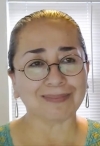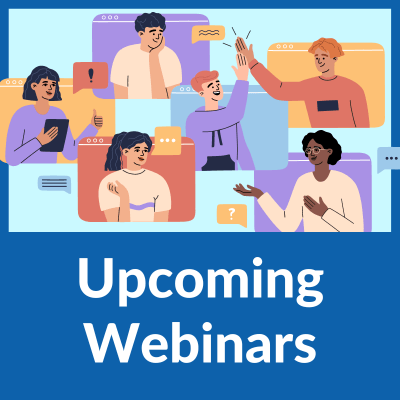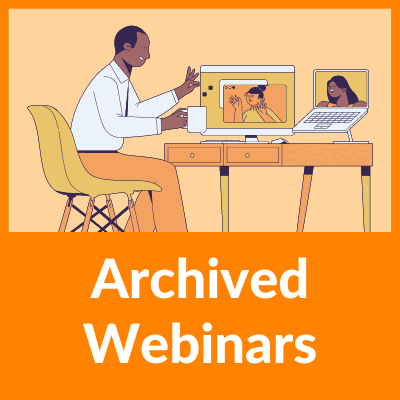
Arturo estaba limpiando el piso de la cocina del restaurante donde trabajaba después de terminar su turno del día. Para limpiar y ahorrar tiempo combinó dos soluciones de limpieza. Poco sabía él que mezclar los productos de limpieza produciría una combinación química que pondría en peligro su vida. Cuando Arturo empezó a limpiar empezó a sentir náuseas, dificultad para respirar, el pecho apretado y un dolor agudo y ardiente en toda la piel. Algunos compañeros de trabajo se dieron cuenta y lo llevaron al hospital, donde luego murió. Otros trece trabajadores y clientes se enfermaron por la exposición química y fueron hospitalizados antes de que el restaurante fuera despejado y ventilado.
Los trabajadores usan miles de químicos diariamente. Muchos de estos químicos causan daño en el trabajo y solo algunos pocos están regulados en el trabajo y los trabajadores sufren efectos severos de manera inmediatos y a largo plazo debido a dichas exposiciones laborales. La Administración de Salud y Seguridad Ocupacional (OSHA por sus siglas en inglés) estima que anualmente los trabajadores padecen más que 190,000 enfermedades y 50,000 muertes relacionadas con los químicos. Las exposiciones químicas en el trabajo pueden resultar en cáncer y otras enfermedades en pulmones, riñones, piel, corazón, estómago, cerebro, nervios y sistema reproductivo. Todos los trabajadores tienen derecho a saber sobre los químicos con los que trabajan y los trabajadores de salud comunitarios pueden ser una fuente importante de información y apoyo para los trabajadores. Este seminario virtual analiza cómo los trabajadores se exponen, posibles efectos en la salud de dichas exposiciones y estrategias para ayudarlos a protegerse mejor.
Watch the Webinar Recording
Take the Evaluation
Al final de la presentación, los participantes podrán…
- Reconocer cómo los trabajadores se exponen a los químicos y sus efectos en la salud
- Describir prácticas básicas de seguridad, cuando se trabaja con químicos
- Entender el papel de los promotores de salud en ayudar a los trabajadores para que prevengan exposición en su trabajo
Presenters

Caitlin A.
Fish
J.D.
IRB Member
Texas RioGrande Legal Aid, Inc.
Caitlin A. Fish is a Staff Attorney with Texas RioGrande Legal Aid, Inc.’s Laredo Office, where she practices primarily immigration and family law. As a member of the Legal Aid for Survivors of Sexual Assault (LASSA) team at TRLA, Caitlin also handles a variety of civil legal cases for survivors of sexual assault, including employment and education cases. She also engages in community outreach through educational presentations on a variety of legal issues and participation in various community coalitions. Prior to law school she worked for the Wake Forest School of Medicine as a Data Collector and Clinical Studies Coordinator on a variety of projects studying health disparities in rural and underserved communities. As a law student, she worked for several different organizations advocating for immigrant and farmworker rights, including Farmworker Justice and the University of Wisconsin Law School Immigrant Justice Clinic. Caitlin has presented on a variety of issues at the State Bar of Texas Poverty Law Conference, Texas Association Against Sexual Assault Annual Conference, Legal Aid for Survivors of Abuse Annual Conference, and Webb County Domestic Violence Coalition Conference. Caitlin also is the Pro Bono and Community Service Chair for the Laredo-Webb County Bar Association and a member of the board for Casa de Misericordia Domestic Violence Shelter. Caitlin received her J.D., cum laude, from the University of Wisconsin Law School with an Employment and Labor Law Concentration. She is licensed to practice in Texas and Wisconsin.

Alma
Galván
MHC
Director of Community Engagement and Worker Training
Migrant Clinicians Network
Alma Galván, MHC (she/her/ella), is the Director of Community Engagement and Worker Training with MCN. Bicultural and bilingual, Galván has worked for more than three decades to improve the health of communities disadvantaged by structural inequities in the United States, Mexico, Puerto Rico, and Latin America. Her work has focused on a broad range of public health topics including infectious diseases, environmental health and justice, climate justice, worker health and safety, drug prevention, water and sanitation, cultural competency, and community development water and sanitation. She has worked with community-based organizations and international agencies such as the Pan American Health Organization. At Migrant Clinicians Network, she fosters innovative and participatory approaches to building capacity among immigrant and migrant communities and other underserved populations. She contributes to the development, implementation, and evaluation of multiple projects. Galván has extensive expertise in providing technical assistance and developing culturally contextual curricula and educational materials for Limited English Proficiency and low-literacy adult learners, community health workers, health professionals, health educators, and clinicians. Her unique approach to adult learning and expansive expertise in community-based approaches to health promotion helped hundreds of community health workers, clinicians and health department personnel bring culturally contextual COVID-19 resources and strategies to immigrant and migrant communities in order to promote vaccination and address mis/disinformation. Galván has worked extensively with MCN partners, community-based organizations, health agencies, and local and state health departments promoting health equity through language access and cultural competency. Galván has a strong health and social science background and has designed, implemented, and assessed programs for over 30 years. Galván is bilingual in English and Spanish. She is passionate and committed to addressing health inequities and lessening disparities. In her free time, Galván spends time with her family, and enjoys movies, reading, and learning about different cultures.
Continuing Education Credit (CEU)
To receive CME* or CNE credit after viewing this webinar, you must:
- Complete the Participant Evaluation associated with this webinar
- Send an email with your first and last name stating which webinar you completed to contedu@migrantclinician.org

